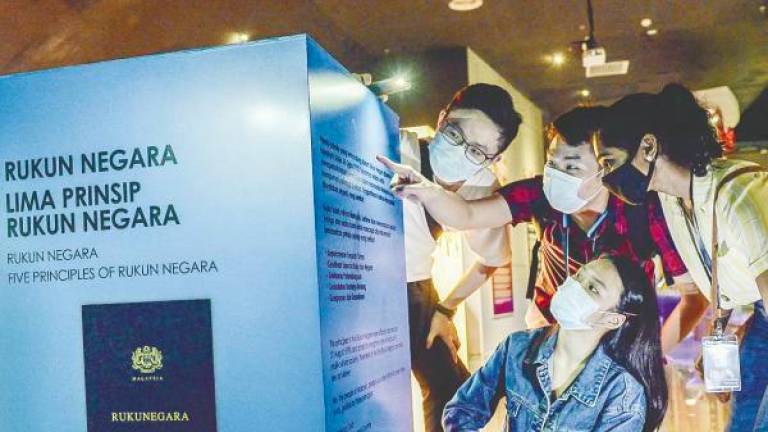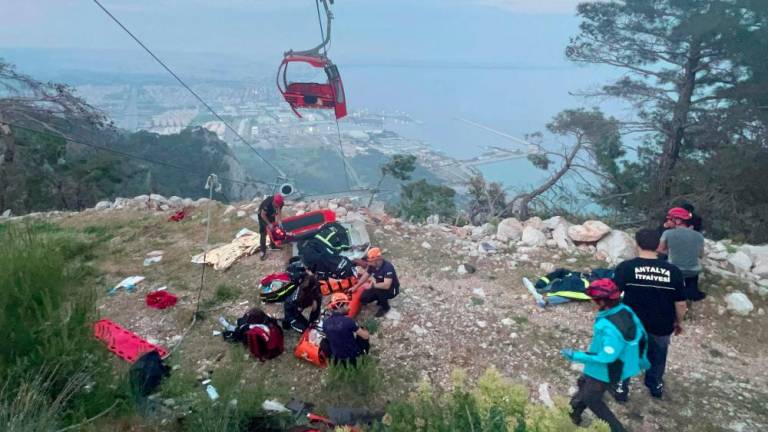IT is time that we, jointly as a community, take concerted steps to minimise the impact of the Covid-19 outbreak.
Meal times
It is advisable not to share food with another person. It is best to have a spoon for every dish and use that to put items on your plate and not take food directly from the dish with your spoon, chopsticks or hands. It would be good to do this both at home and when eating out. When you go out to eat, bring your own chopsticks, or fork and spoon. Higher risk individuals may also want to bring their own cups. Avoid using a straw for drinks unless necessary, perhaps for a person with a disability. Children need to be taught these hygienic practises, including not drinking out of someone else’s cup or licking a shared ice-cream.
Improved hygiene at eateries
Cups, plates and utensils should be washed thoroughly. All food outlets should clean table tops in between every customer. They should use an alcohol based spray (at least 60% alcohol). They should stop using a dirty, wet tablecloth. Use instead a paper kitchen towel once and then safely throw it into the bin. If shops do not do this, we as patrons can try to clean the table top before we sit down to eat. Food handlers and servers should use a transparent kitchen mouth shield (mouth or spit guard). They can be washed and used again.
What to do if you are ill
If you develop a respiratory infection tell your employer, school or university and refrain from going back until you’re well. Employers should offer compassionate leave as well as the opportunity to work at home. If one person at home becomes unwell others should not sleep with them; there may be an exception for young children. The ill person should use a separate bathroom, if available. All “high-touch” surfaces (counters, table tops, doorknobs, bathroom fixtures) should be cleaned. Avoid sharing towels and hanging them in the bathroom; damp towels are good items to spread viruses. There is some evidence for this coronavirus to spread by stool (faeces). Flushing of the toilet should be done with the lid down and toilet bowl covers should be cleaned periodically.
Crowds, conferences and meetings
Minimise contact with crowds. Keep your distance from individuals. Avoid shaking hands, hugging or touching others unless absolutely necessary. Postpone events and avoid large gatherings.
Cough etiquette
Cough or sneeze into a tissue or learn how to cough or sneeze into a flexed elbow or sleeve when it happens unexpectedly. After the cough or sneeze dispose of the tissue in a closed bin and wash your hands with soap and water or clean your hands with an alcohol-based sanitiser. If someone in public is coughing or sneezing, keep your distance (at least one metre away), and ask them to do the above. If they are repeatedly coughing or sneezing ask them to put on a mask (3-ply surgical mask or N-95 mask). Consider carrying some spare masks and offer them to individuals who cough or sneeze.
Protective devices
It is important to carry our own personal protective devices for emergencies. Always carry some 3-ply surgical masks or an N-95 mask in your bag. We do not need to wear masks unless we are unwell or we are travelling in an aeroplane, taxi, bus or train. Remember the 3-ply surgical masks or cloth masks are no longer effective once they are wet. They have to be changed frequently (at least hourly) and worn correctly. Remember to dispose of them in a closed bin. Do not to travel if you are unwell. In addition, alcohol-based hand sanitisers, with at least 60% alcohol, are necessary to keep with you at all times. You should clean your hands after touching surfaces. Clean your hands with an alcohol base sanitiser after you’ve left a shop or come out of an office, after touching door knobs, public tables, etc. Stop touching your face with your hands. Contaminated hands can transfer the virus to your eyes, nose or mouth.
Visits to hospital or clinic
Hospitals and clinics are higher risk locations to visit and we should avoid going to the hospital or clinic unless necessary. For planned appointments, it would be good for hospitals and clinics to offer mobile appointment services to limit the number of people waiting to see a doctor. We can arrive 10-15 minutes before the visit, see the doctor and go off quickly. This can be arranged if we improve efficiency.
Social distancing
Those in education as well as employers need to have a contingency plan. The responses from China, South Korea and Japan have been swift and decisive. For example they have closed schools for some duration, but still are able to offer online education for the students. Iran has closed schools and universities and cancelled group Friday prayers in more than 22 cities. Are we ready if we are faced with a similar situation? Are we prepared for temporary closures? Social distancing measures, if required, will be difficult for everyone but can be achieved if we all work together and support each other.
Dealing with false information
WHO has a Covid-19 myth busters page with advice for the public. It states clearly that there is no evidence pets such as dogs or cats can spread this new coronavirus. Also that it is safe to receive a package from China as coronaviruses do not survive long on objects such as letters or packages.
Preparing emotionally
It is important to act responsibly during this time. Adopt, and continue to practise at all times, good infection control etiquette. We cannot act like we live on an island isolated from others.
We should prepare not just for ourselves but also for our older family members and neighbours with chronic illnesses. Our risk may be small but we need to prepare to reduce the risk for others, especially those who lack resources. Our preparedness and risk reduction will also reduce the burden on the healthcare system allowing our medical staff to focus on those most vulnerable to this outbreak.
The situation is fluid and everyone needs to keep up-to-date with the latest information so that we can work, not just as a country, but as a global community to deal with this threat. This outbreak will teach us many things about ourselves and the need for humanity to change and respect nature.
I leave you with these words of wisdom by Michael O. Leavitt, a former secretary of the US Department of Health and Human Services, spoken in 2007 at a pandemic influenza leadership forum: “Everything we do before a pandemic will seem alarmist. Everything we do after a pandemic will seem inadequate. This is the dilemma we face, but it should not stop us from doing what we can to prepare. We need to reach out to everyone with words that inform, but not inflame. We need to encourage everyone to prepare, but not panic.”
Datuk Dr Amar-Singh HSS is a senior consultant paediatrician.












